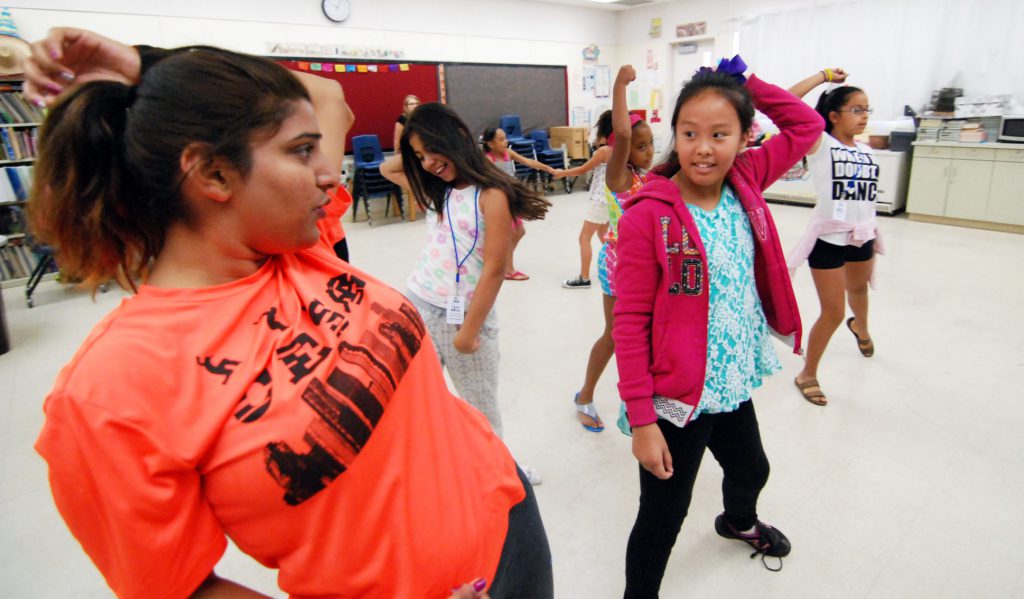BY JESSICA GUNDERSON and JULEE BROOKS
Photo: Jay Dunn/The Partnership for Children & Youth (PCY)
The pandemic shed a bright light on something we already knew: The traditional school day is not enough to serve the whole child. Students in our school systems are struggling academically. From low test scores to low attendance rates, the pandemic recovery has left too many students behind. In response, California made a $4 billion commitment — part of the most significant funding increase in the state’s history — to fund quality expanded learning programs through the Expanded Learning Opportunities Program in an effort to bridge critical gaps in the school day.
To fully support students’ development, we must go beyond test scores and classroom performance. Students need experiences that support their minds, bodies and spirits, too. Programs before and after school, enrichment and summer learning offer safe spaces for students to spend time outside the classroom, where they can connect with trusted adults, catch up on schoolwork, engage with their friends and play in green spaces outdoors. These programs help boost students’ school performance, increase school day attendance and graduation rates and increase family engagement.
The good news is that state leaders are paying attention to the benefits of these types of expanded learning programs across the state. Recently, state policymakers participated in events here in Los Angeles to celebrate Lights On Afterschool — an initiative that calls attention to the importance of after-school programs. They saw firsthand the positive impact that learning outside of regular school hours has on children, not only academically, but mentally, emotionally and physically.
Through quality expanded learning, we see kids transform into their most authentic selves, and when there is a dedicated effort toward inclusion, experiences lead to self-discovery and a commitment to their communities. We believe that expanded learning programs help students understand their deeper place in the world, and the confidence they build here expands into their time in the classroom and in their communities.
Expanded learning goes beyond just the academic benefits, to the social and emotional health of students, necessary building blocks for the development of happy and healthy children. Last year more than 94% of surveyed middle-school participants in local programming said they grew in key areas of social and emotional development, like self-management and positive identity. Additionally, 83% of elementary participants felt a sense of team or group identity, especially important for a generation still reeling from the aftermath of isolation due to the pandemic.
From first graders playing violins in mariachi bands to young athletes learning skills and important life lessons on and off the court and young people finding new confidence after a few nights at a sleepaway camp, demonstrate the immediate and long-term results of confidence, collaboration, cultural pride and agency. When young people are given choice and opportunity to find what “sparks” them, they find a sense of self that gives them a foundation for school and life success.
Expanded learning programs are an essential part of development for so many students across our city — and our state. Our daily interactions with students in these programs prove we are on the right track — but we aren’t done yet. We must continue to fund and support high-quality expanded learning programs to ensure all students across the state have access to these opportunities to set the whole child — and whole communities — up for success.
•••
Julee Baber Brooks is CEO of Woodcraft Rangers, a major expanded learning provider that serves over 20,000 at 120 locations.
Jessica Gunderson is co-CEO of the Partnership for Children and Youth, a nonprofit working to increase access and quality of expanded learning programs in California.
The opinions expressed in this commentary represent those of the authors. EdSource welcomes commentaries representing diverse points of view. If you would like to submit a commentary, please review our guidelines and contact us.

